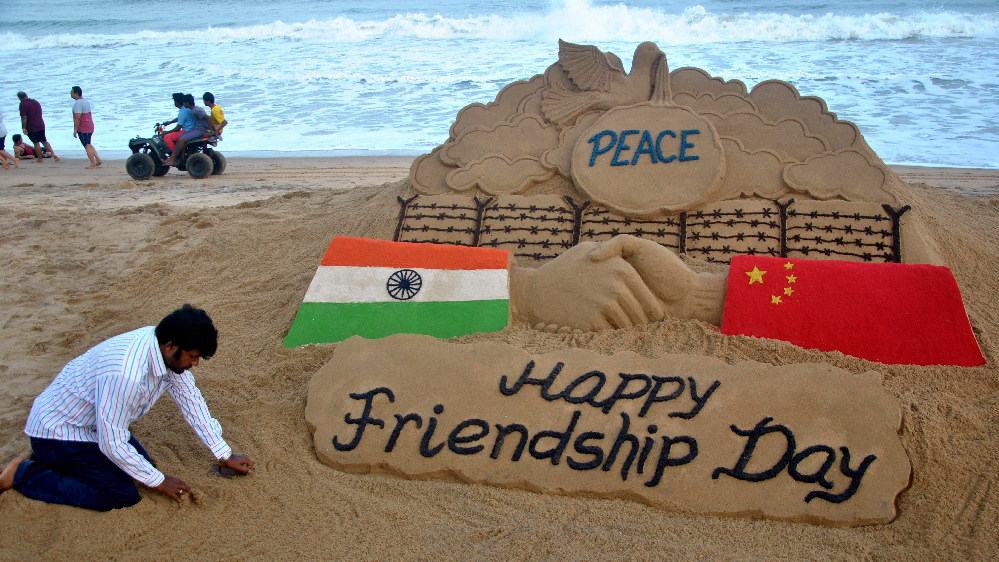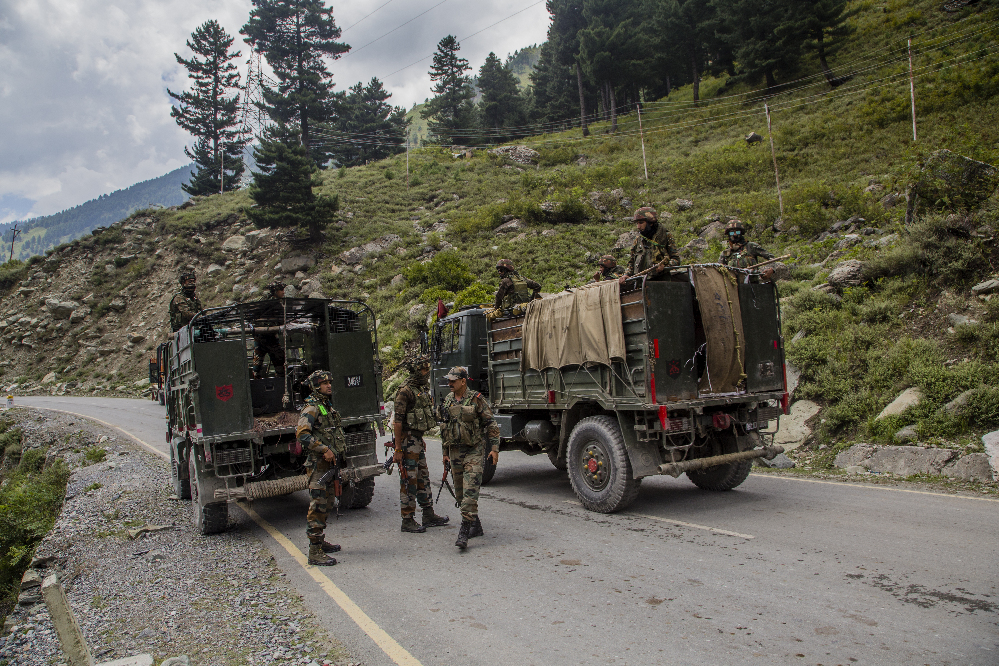
Editor's note: Keith Lamb is a University of Oxford graduate with an MSc degree in Contemporary Chinese Studies. His primary research interests are China's international relations and "socialism with Chinese characteristics." The article reflects the author's opinions and not necessarily the views of CGTN.
After last year's standoffs on the Sino-Indian border that led to casualties on both sides, the news that Chinese and Indian troops, along the Southern and Northern sides of the Pangong Tso Lake, started a synchronized and organized disengagement on February 10 are positive.
It shows that even when tensions rise, the voice of reason can and will prevail. This is no small feat considering the corporate press in both the West and India are constantly whipping their populations into a vengeful frenzy with one-sided propaganda. This propaganda inevitably paints a picture of China as the aggressor and India as the victim.
Those who wish to craft this simplistic perception of reality do so by making claims that Chinese troops are constantly crossing the Line of Actual Control (LAC) between India and China. The Chinese Ministry of Foreign Affairs has persistently denied such claims.
Breaking ranks with this well-crafted perception are the recent comments made by the former army chief, General V. K. Singh, who is now the Indian Union Minister of State for State Transport and Highways.
In his candid remarks to the press on February 7, he hinted at the propaganda war against China by the Indian media which is not reciprocally engaged in by the Chinese media against India. He brought up the fact that while the Indian press was only too willing to report on Chinese transgressions of the LAC, Indians remained in the dark on how often India crossed the LAC.
Furthermore, he said the "Chinese media does not cover it" (Indian transgressions of the LAC), as such, the Chinese population is not filled with enmity for India. As a former general only too aware of how many times India has crossed the LAC, he said, "let me assure you, if China has transgressed 10 times, we must have done it at least 50 times."
Such truth that defies the biased reporting on Sino-Indian affairs rarely gets out. Singh is then a brave man for breaking ranks and it has landed him in trouble. Congress leader Rahul Gandhi has demanded Singh be sacked for his remarks which are "helping China make a case against India."
However, Singh should not be regarded as a traitor to India for speaking the truth. He has good reason for going against the simplistic propaganda that turns China into an aggressor and India into a victim.

India and China are giant neighbors who should one day take their positions as the two largest economies. Their relationship cannot be built on lies, exaggerations, and distortions disseminated by India's corporate media and their paid-for politicians who maintain cold-war mindsets. Indeed, these people that man the corporate media and these paid politicians owe their loyalty to profit over any regards to nation-building.
The truth when it comes to the Sino-Indian border dispute and the LAC is in fact highly complicated. Much of the border between India and China has been demarcated; still, both sides have their own perceptions of where it should be. As such, to imagine that Indian troops are not positioned in places that China perceives are on its side is simply nonsense.
Of course, this logic goes the other way too, which is all the more reason to sit down and talk rather than fight. This is precisely why Chinese and Indian military officials held their ninth round of corps commander-level talks in January when they agreed to promote the process of disengagement which we see taking place today.
Undoubtedly, as General Singh points out, the Indian military knows fine well that what the corporate media presents to Indians and the world does not reflect the real situation on the ground. This is why mutual disengagement has taken place. In this dispute, there are no bad guys except for the corporate media and their patrons which seek to disrupt good neighborly relations between the two most populous states.
Much of the Sino-China border has been carved up and defined by Britain, India's former imperial master, who subjugated both India and China. This tragic past still plays out today and while it eventually needs to be settled, this past must not be allowed to determine the overall comprehensive future relationship between India and China.
The breakdown of the Sino-Indian friendship cannot benefit either side as members of BRICS, as two countries with large populations, and as two countries with a shared dream of development are natural partners. In fact, fermenting discontent between the peoples of India, and state to state relations, can only benefit powers outside the Asian continent who seek to draw India into their Indo-Pacific gambit which they seek to use to thwart the rise of the developing world and maintain undemocratic unipolar dominance. This is what the Quadrilateral Security Dialogue comprising of Australia, India, Japan, and the U.S. is about.
Make no mistake, if China will not be allowed to rise independently, then neither will India, the Arab world, Africa or South America. What is at stake is a democratic multipolar world order characterized by the rise of numerous civilizations which have hitherto been subject to Western unipolar domination.
The Indian military, with their nationalist sentiment, no doubt has a good grasp on this fact and this is why General Singh made his remarks. As a patriot, he fears India's corporate press along with Western states, who still maintain a pernicious influence on India's perceptions of itself and the world, would be all too willing to push India into an unnecessary conflict with China. That would be to the detriment of India's interests.













